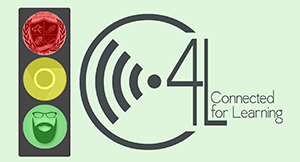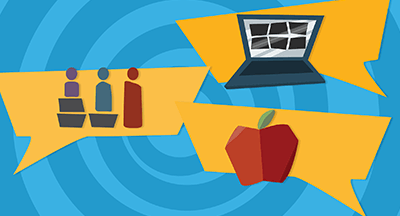
Technology use is among the most hotly contested topics between parents and schools. A vocal group of parents has registered concern about students being assigned devices and required to use them to complete assignments.
Parents may have various qualms about technology and almost certainly have opinions about how their children should be permitted to use it. Most of them boil down to one thing: protecting kids. It’s a goal everyone shares, but technology isn’t going away anytime soon. Instead, educators and parents must work together to foster the digital skills kids need to grow into productive citizens of technology.
Prepare the child for the road
Successful digital citizenship lessons require educators and parents to balance protection with the wealth of knowledge and opportunities available online. Digital citizenship skills help students build a healthy relationship with technology as they eye their future goals, be it college, vocational training, or career—all of which will require some form of technology to complete.For actual curriculum, look no further than Common Sense Media. They are the leading independent, nonprofit organization dedicated to providing educational materials to help kids become media savvy. Still, not every skill or experience can be conveyed in the classroom. It’s crucial for kids to experience models of healthy screen interaction, good data hygiene, and mindful posting. This is groundbreaking for parents who (believe it or not) weren’t born with their own email addresses already reserved on their behalf and who didn’t get their own cell phone until they were old enough to drive a car (true story). This whole parenting thing is hard enough without having to navigate digital citizenship. The secret lies in communicating the precious value of these skills.
Is it inevitable that children will use technology? The research says yes. Jobs requiring high digital skills have jumped from 5% in 2002 to 23% in 2016. The same study found the number of jobs requiring low digital skills fell from 56% to 30%. There are no low-tech fields.
Keep kids safe online
Children like to make friends. They’re geared to be open-minded. They crave interaction and recognition. They are learning everything for the very first time. How can we possibly expect them to automatically know what is and isn’t safe to do online?Children must practice their inevitable interaction with the world of technology just like they practice fire drills and clicking seatbelts. There’s emerging intelligence on how exactly to do this, but the basics fall to data privacy and knowing what absolutely must be kept private:
- Personal identifying information such as full names, addresses, phone numbers, and email addresses
- Passwords and usernames, which let other people have access to their private online accounts
- Photographs, which can be used to identify kids IRL and used by other people online in unrelated ways to the original poster (for example, to assume an identity or craft a fake persona)
Know the perks and pitfalls of media consumption
We live in an age of unparalleled information access: Rich narratives of people you’ll never meet in your hometown. Pictures of far-off places. Factual accounts of just about any event in history. News literacy refers to the ability to identify questionable news sources, which range from opinion masquerading as news to satire to flat-out disinformation campaigns. If equipped to tell the difference between fact and fiction, kids will be well on their way to being productive citizens (digital or otherwise).Social media does not have to be the all-bad, black-and-white scourge it’s made out to be. Indeed, some kids have crafted supportive networks available whenever the need may present itself. At the same time, social media is deliberately designed to be addictive. Parents can watch for warning signs that a student is being bullied or otherwise using social media in an unhealthy, compulsive way: change in mood or energy level, obsession with being connected at all times, and a declining interest in beloved hobbies. Kids still need plenty of non-screen time to balance out their digital lives.
Monitor new friendships
Global connections are easier than ever thanks to the World Wide Web. While there are many opportunities to forge friendships, they must be carefully monitored—yes, even for older kids and teens. Encourage parents to ask lots of questions about online friends, keep a list of passwords so they can log in as their child, and require kids to use their devices out in the open, instead of privately in a bedroom.Make sleep a priority
We know devices interfere with adolescent sleep. Another parent outreach which may help kids centers around shutting down devices at least an hour before bed and keeping them outside the bedroom. Good sleep habits are extremely important and help students focus on learning during the day.Digital citizenship helps students gain the skills they need to enjoy a life online free of fear, compulsion, and confusion. By working together, educators and parents can start kids off on a healthy path.
Follow-up resource: Build healthy skepticism
Check out this primer on news literacy to learn how to navigate the Internet's endless questionable news offerings.WHAT'S NEXT FOR YOUR EDTECH? The right combo of tools & support retains staff and serves students better. We'd love to help. Visit skyward.com/get-started to learn more.

|
Erin Werra Blogger, Researcher, and Edvocate |
Erin Werra is a content writer and strategist at Skyward’s Advancing K12 blog. Her writing about K12 edtech, data, security, social-emotional learning, and leadership has appeared in THE Journal, District Administration, eSchool News, and more. She enjoys puzzling over details to make K12 edtech info accessible for all. Outside of edtech, she’s waxing poetic about motherhood, personality traits, and self-growth.




